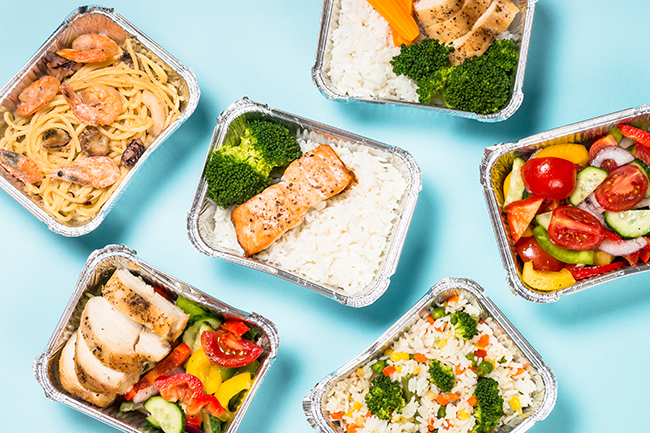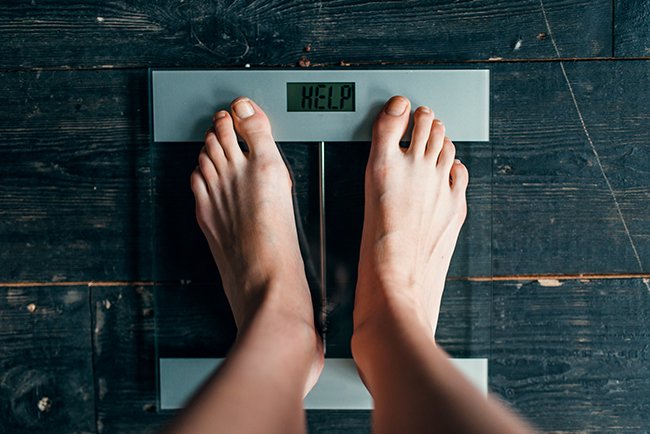How Women Use Energy Differently From Men During Exercise…and Need Different Nutrition
When it comes to gender differences in nutrition, the focus is often on specific nutrients such as iron and calcium that women may need more of. As important as optimal levels of these nutrients are, there are also gender differences in how women use energy that need to be accounted for. New research shows that trained female runners use less muscle glycogen than men during exercise (1). Glycogen is the storage form of carbohydrates that fuels muscle contractions. This study tested glycogen use in the calf and quadriceps muscles
Drawbacks of 6 Meals A Day & Other Meal Timing Mistakes
One of the most pervasive myths regarding meal timing is that you should eat six small meals every few hours to increase metabolism and lose weight. In fact, research shows that this approach often backfires and may lead to weight gain and worse metabolic function. The theory behind the six meals-a-day recommendation is that when you eat, you raise your metabolic rate slightly by increasing the thermic effect of food—that is, the calories burned as the body processes a meal. However, the additional number of calories burned is minimal,
How Strength Training Can Help You Lose Body Fat
Conventional knowledge tells us that aerobic exercise is the ticket to weight loss. Ask any trainer and they will tell you they’ve had clients who insist on doing cardio to lose weight before starting a strength training program. Unfortunately, this approach usually leads to disappointing returns due to several factors: Many people find aerobic exercise stimulates appetite. They end up eating more calories, negating the calorie deficit they created from training. People who do manage to create an energy deficit will end up losing a lot of muscle in addition
Keto For Older Adults = 5x Greater Fat Loss Than Low-Fat Diet
If losing body fat is on your to-do list, a low-carb keto diet is something you should consider. A new study shows that cutting carbohydrates in favor of fat can help older adults lose significantly greater body fat than a low-fat diet. This study was noteworthy because it debunks the popular concern that keto diets raise LDL cholesterol and aren’t appropriate for older adults who need to worry about cardiovascular health. It also highlights why keto diets are so effective for fat loss: They improve the body’s use of
Always Count Tempo: Build More Strength & Muscle By Controlling Lifting Speed
There’s a strange paradox in program design: One of the most important variables is unknown or incompletely understood. Tempo, or the speed with which you perform the different components of an exercise, plays a huge role in training outcome. If you ignore it, your gains will be mediocre and you put yourself at risk of injury, whereas mastering tempo prescriptions, along with the other variables of program design, will get you fantastic results. This article will give you a quick overview of tempo and provide four reasons to incorporate
Eccentric Training = Better Results, Less Work
Most people like the idea of getting better results with less work. Eccentric training is one way to do this. Research show that focusing on the eccentric, or lengthening, phase of a lift will produce superior hypertrophy, strength, and power—if you program properly. To ensure everyone is on the same page, here are definitions related to the phase of muscle contractions: The eccentric phase of a lift occurs when a muscle lengthens. This is the down motion of the bench press, biceps curl, or squat. The concentric phase of
The Dangers of Chronic Dieting for Female Athletes
When it comes to sports nutrition, most athletes pride themselves on eating in a way that optimizes performance. They are committed to spending time, money, and effort to get the highest quality pre- and post-workout nutrition. Despite this commitment to fueling for performance, women and girls are at substantial risk of underfueling. Research shows that many female athletes are involved in a cycle of chronic dieting that leads to low nutrient intake and impaired physical and mental performance. Surveys suggest that a staggering 2/3 of collegiate female athletes are
Why Can’t I Lose Weight Despite Exercising?
Conventional advice tells you to exercise if you want to lose weight. Repeated studies and real-life experience show this is often not the case, leading many disappointed exercisers to ask “Why can’t I lose weight even though I’m exercising?” This is a complicated question because there are a lot of different moving pieces to weight loss. First, it's helpful to identify how the body loses weight. For weight loss, it's necessary to have a calorie deficit that is sustained over time so that you are taking in fewer calories











